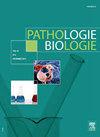Kind attention and non-judgment in mindfulness-based cognitive therapy applied to the treatment of insomnia: State of knowledge
Abstract
Psychophysiological insomnia is characterized by acquired sleep difficulties and/or a state of hypervigilance when going to bed. This mental and physiological condition prevents sleep onset regardless of the presence of anxious or depressive disorders. Despite the fact that cognitive behavioural therapies have been shown to be effective for this disorder, some people are not responding to this treatment. It is therefore important to explore new ways of increasing the effectiveness of current treatments. Approaches based on mindfulness, which promote a non-judgemental acceptance of the living experience, are increasingly reported in the literature to be effective in the treatment of various physical and psychological health conditions, being particularly efficient in reducing the stress and discomfort associated with these problems. This article focuses on some cognitive factors associated with maintaining insomnia and suggests that approaches based on mindfulness, through certain action mechanisms, may help to improve sleep. A review of recent studies on the application of mindfulness-based approaches to treat insomnia is hereby presented. Avenues for future research to improve insomnia treatment protocols based on mindfulness are suggested.

 求助内容:
求助内容: 应助结果提醒方式:
应助结果提醒方式:


